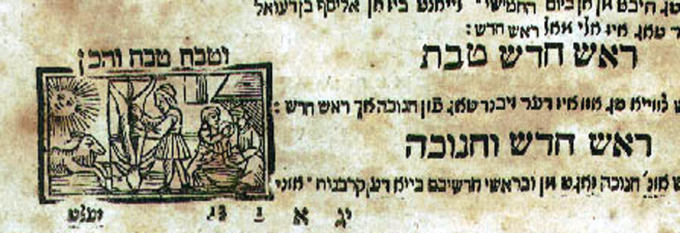The Torah represents a culture that doesn’t easily forget. From the sibling rivalries of Genesis to the prescribed sanctions against Moabites, Amonites and Amalekites in Deuteronomy, there is always an account to be settled. But the lesson from the story of Joseph and his brothers is one of forgiving.
In last week’s Torah reading, Vayeshev, we read that Joseph was sold into slavery by his jealous brothers, was framed for rape by his master’s wife and sat for many years in an Egyptian dungeon. This week’s reading tells of Joseph utilizing his talent to interpret dreams and save Egypt from hunger during a great famine. In time, Joseph climbs the ladder in Pharaoh’s court and eventually appointed as viceroy.
Even initially in Egypt, before getting into trouble with his accuser, Joseph had done quite well for himself, as reflected in this passage read last week:
The Lord was with Joseph and he was a successful man. (Gen. 39:2)
These words are the caption under this engraving from the title page of a 17th century Bible published in Amsterdam.
Joseph is depicted as a shepherd tending his master’s well fed flocks, implying perhaps success in the very same profession as his resentful brothers.
In this week’s Torah reading, Joseph is charged with managing the country’s food supplies during the years of hunger in the region. His father, Jacob, sends his brothers – without Benjamin, the second born of his beloved wife Rachel – to procure food in Egypt. The brothers are unaware that it is Joseph they are petitioning and are minimally successful with their mission. Through a sly manipulation, they are forced to leave one of the brothers, Simon, behind and are told not to return to Egypt without their youngest brother Benjamin.
The brothers arrive for the second time before Pharaoh’s viceroy, still not knowing that they were actually pleading with their brother whom they had sold into slavery years before. The brothers, wishing their father to believe that he was dead, had staged his death by dipping Joseph’s special tunic in the blood of a goat they had slaughtered for the occasion. Now, upon seeing his mother’s other son, Benjamin, Joseph commands his servants to slaughter a goat in honor of the event.
When Joseph saw Benjamin with them, he said to his house steward, “Take the men into the house, slaughter and prepare an animal; for the men will dine with me at noon.” (Gen. 43:16)
The Hebrew for “slaughter and prepare an animal” is v’tavoah tevah v’hachen. As often happens, rabbinic imagination interprets a seemingly mundane phrase in an unexpected way and this is what we find in the Talmudic commentary of R. Joshua Boaz ben Simon Baruch (16th century, Italy). In the context of feasting during the Festival of Lights, he rearranges the last five letters of this phrase into anagram spelling “Hannukah”. He then adds that the numerical value of the first two words equals 44, the total of candles lit during the holiday (Shiltei Hagiborim, al Hagahot Mordechai, Shabbat 456:3). This midrashic interpretation is likewise found in the image below found in a book of customs next to notes (in Yiddish) concerning Hanukkah and the Hebrew month of Tevet, during which this Torah portion is always read.
I am one of those who believes that if one spends enough time manipulating the letters of the Hebrew Bible, one can discover almost any “hidden” message and this seems to be the case here. But even if this connection is somewhat random, might we not find a somewhat different message in the story of Hanukkah than the traditional understanding of a cultural battle between Hellenism and Judaism? In the same way that the Joseph narrative teaches that the survival of Jacob’s offspring, later to become the People of Israel, was made possible through our hero playing an integral role in Egyptian politics and culture, perhaps the historical study of the Maccabees might demonstrate the adaptability and integration of Jewish life and culture within the context of Greco-Roman civilization. Maybe it’s as simple as preparing special food, lighting 44 candles over the eight days and moving on, learning to forgive those who have wronged us in the past.
Shabbat Shalom v’Hannukah Sameah!




